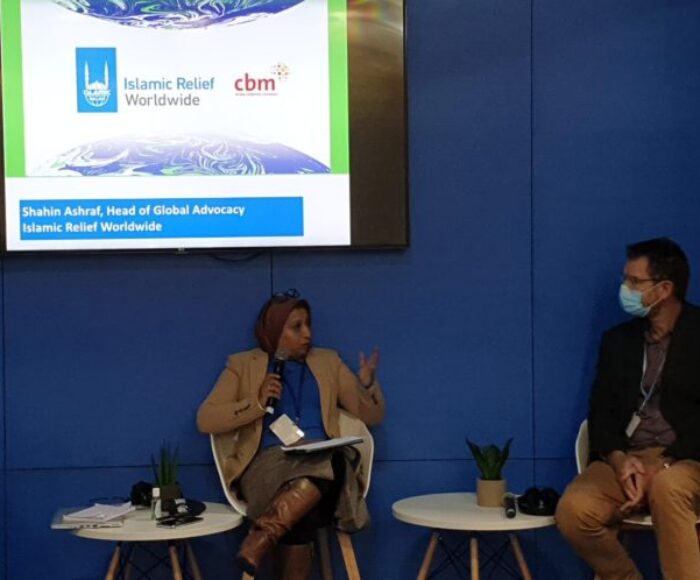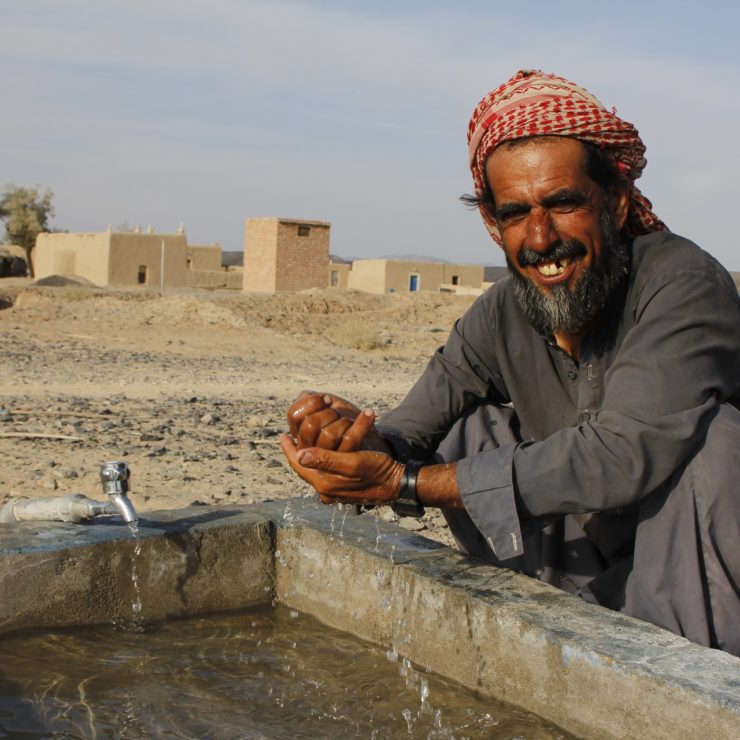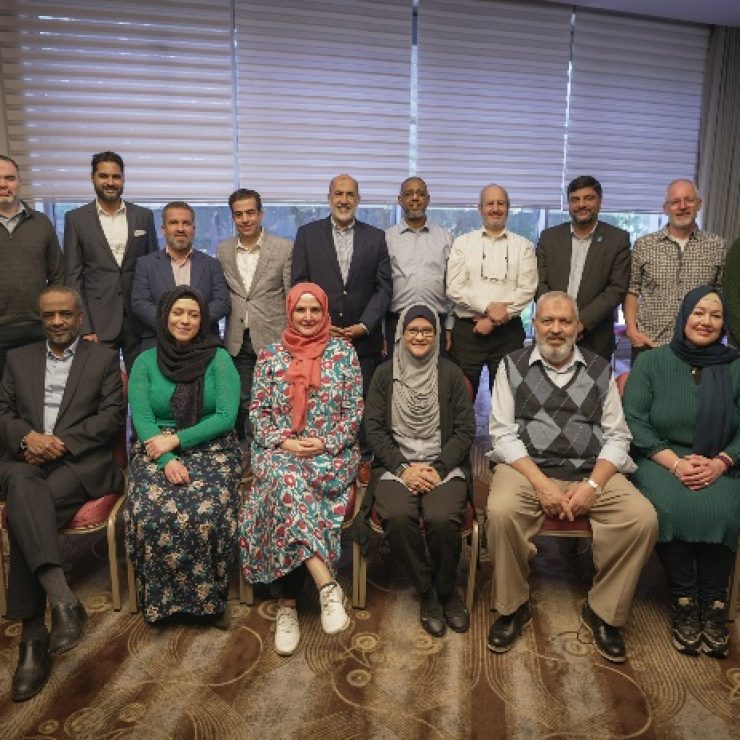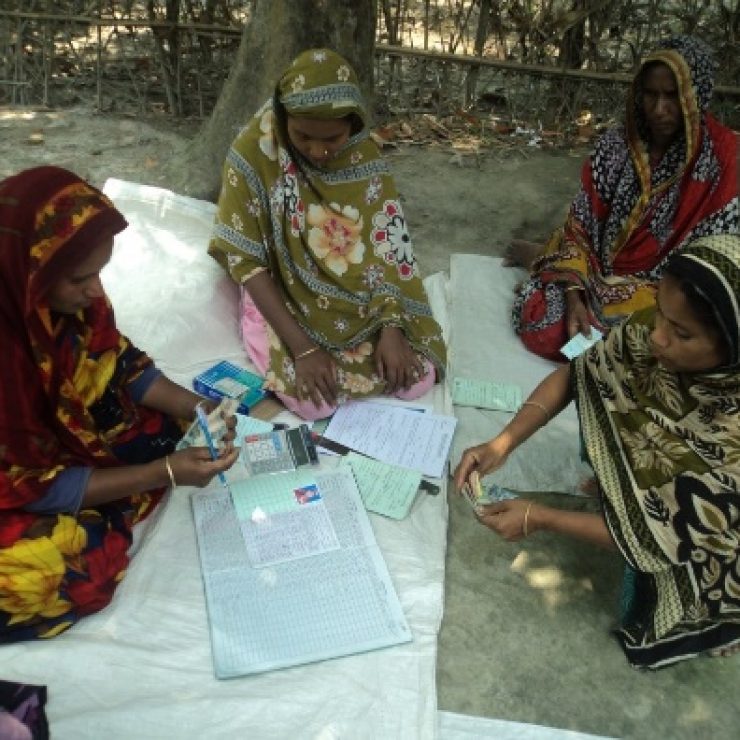Informing climate decision-making
This year we had a significant presence in the host city of Glasgow as the crucial COP26 climate conference took place in the UK, ensuring that the voices of the communities we serve were heard.
We organised two ‘Road to COP26’ events with partners in two countries. In Indonesia we teamed up with KONSEPSI to host a virtual event producing recommendations and commitments on local initiatives for inclusive low-carbon development and climate resilience. Among the speakers were the governor of West Nusa Tenggara, Zulkieflimansyah, and Ministry of Development and National Planning Board officials. In Pakistan we hosted five events across five provinces aimed at sharing research insights and fostering partnerships and policy dialogue around climate-induced migration in Pakistan.
These events added to the knowledge generated from an extensive series of consultations with climate-vulnerable communities in Bangladesh, which we shared with policy makers before the conference; and Islamic Relief Pakistan’s work with the Ministry of Climate Change.
Adding momentum to climate change action
Islamic Relief staff from the UK, Pakistan, Indonesia, Sweden, Canada and Germany took part in COP26, held in Glasgow, Scotland. We contributed to the United Nations Framework Convention on Climate Change (UNFCCC) sessions, which aimed to negotiate an outcome that underlined the importance of climate change adaptation to communities on the frontline of climate catastrophe. Drawing on our extensive preparations, including as lead on climate adaptation for the Climate Action Network (CAN), we demonstrated that local knowledge and understanding must be at the centre of plans and action to adapt to climate change. Over the two-week conference we held 10 events, including the launch of our climate induced migration report by Pakistan’s Minister for Climate Change, Malik Amin Aslam. At another event, focusing on the nexus between gender-based climate adaptation and localisation, our team from Indonesia presented their experiences of local adaptation practices, including use of indigenous knowledge to understand weather and climate patterns when making decisions about crops and farming practices. Experts provided insights into the challenges and opportunities in climate change mitigation and inclusive adaptation in local contexts.



